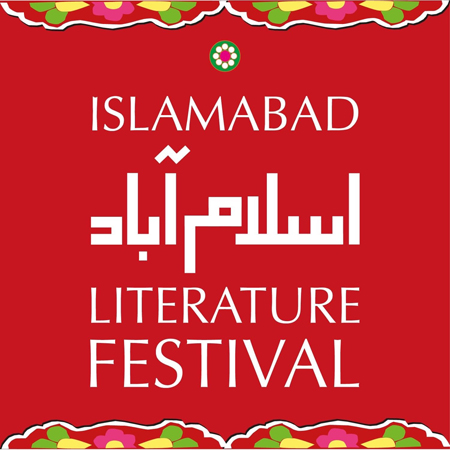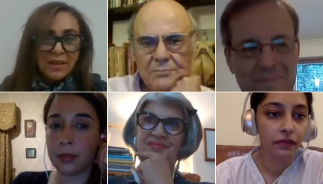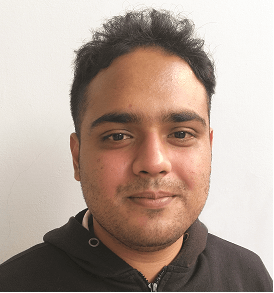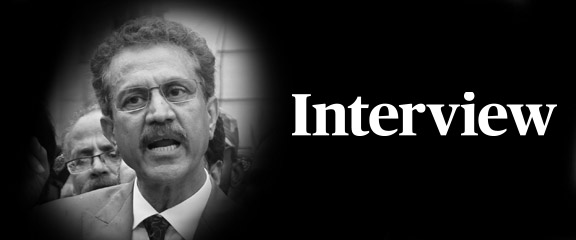Though the point has now been repeated ad-infinitum, the Covid era has served as an accelerant for the digitisation of our lives. As a host of everyday activities from schooling to business meetings now take place online, a steady internet connection joins face masks and hand sanitisers as an essential component of the COVID-19 survival kit. Less than a month from its scheduled start date, Oxford University Press Pakistan’s (OUP) 7th annual Islamabad Literature Festival (ILF) risked becoming yet another unfortunate casualty of the pandemic, struggling to come to grips with the requirements of the ‘new normal.’
Inspired by the success of the Karachi Literature Festival (KLF), the ILF was first launched in April 2013, aiming ‘to create an intellectual space that can express the diversity and pluralism of Pakistani society.’ Though literature remains the main focus, the ILF and its sister festival have risen to become important forums on the national and global issues affecting Pakistan, with journalists, diplomats, politicians and activists appearing alongside novelists, poets and artists to air their work and their views. With such a broad spectrum of participants from both home and abroad and sessions conducted in both Urdu and English, the festivals help foster a dialogue that transcends national, social and class barriers, a rare opportunity in what can at times be a rather insular intellectual landscape. All the more reason that the ILF would have made for a glaring absentee amidst a time that will define both the nation and the world for years to come.

With so much riding on the event and the threat of cancellation ever present, the ILF team members and Advisory Committee fought against time to break from the traditional face-to-face format and build an online infrastructure that could accommodate over 70 speakers and moderators in different cities and countries while not compromising on audience participation. According to OUP’s Marketing Director Raheela Baqai, this unexpected change in format involved “working round the clock from 9am to midnight, every day, up to the day of the festival.”
Fortunately, the hard work paid off. Not only did the festival proceed but it managed to break new ground along the way, becoming OUP’s, and probably Pakistan’s, first virtual literary festival. Spread over 8 days, from October 23 to October 30, the festival received over 100,000 views on its live recorded videos and reached over 820,000 people on social media, far more than have ever attended any of the live events. Furthermore, engagement from abroad markedly improved, with noticeable online traffic from the UK, US and India. In the opinion of Huma Baqai, one of the speakers at the festival and an Associate Professor at the Institute of Business Administration, Karachi, it would be preferable for OUP to switch to a “hybrid model” that includes both face-to-face and online components, “given the advantages of having an online presence in terms of accessibility.”


Aptly themed ‘Words in the Time of Lockdown,’ COVID-19’s influence on literature formed a major theme of the 7th ILF. Speaking at the launch of their book The Stained-Glass Window: Stories of the Pandemic from Pakistan, Sana Munir and Taha Kehar discussed the sheer multiplicity of the experiences that have arisen out of the pandemic, an extension of the pre-existing differences and inequalities of our society. Given the breadth of this spectrum, the pair decided on compiling an anthology consisting of fictionalised versions of different writers’ trials during the pandemic as the most appropriate format for the times. At a time when it is all too tempting to retreat into one’s shell, Kehar and Munir highlighted the cathartic effect the stories had on their writers, helping them come to terms with their circumstances through fiction. This spirit is perhaps best encapsulated in a story written by a 15 year old who survived the virus, who according to Kehar, wrote about her ordeal in an upbeat way, bringing a human touch to her portrayal that is often lacking in mainstream media narratives about Covid.
In contrast to the optimism of Munir and Kehar, writer and literary journalist Muneeza Shamsie presided over a far more sombre panel, entitled ‘In Covid Times: What Do You Read And Write.’ When asked about the future of literature post-Covid, Waqas Khwaja, Author and Professor of English at Agnes Scott College in the US, predicted an increase in novels of the dystopian fiction genre while asserting it would take time for the literary community to fully process the impact of the pandemic on our social fabric. Egyptian novelist Ahdaf Soueif argued that “what we were being made to perceive through the pandemic was the sharp point of a lesson we should have learnt anyway,” drawing attention to how pre-existing social and political quagmires have been accentuated by the pandemic. Soueif felt that the pandemic had given the world an opportunity to reflect and that “the world was taking that opportunity to reflect,” pointing to a growing understanding that “we must find new, more just and more communal ways of living.”
While many of the speakers welcomed the shift to online education, it seemed painfully clear that, given the substantial difference in the capacity to adopt online education between private and public schools, the inequities in our education system will probably widen.
Nowhere was this reflection more penetrating than among the speakers who discussed the future of education in Pakistan. In an indictment of our current education infrastructure, Associate Professor of Economics at the Lahore University of Management Sciences, Dr. Faisal Bari, observed that “there are 20 odd million children of ages 5 to 16 that are not in school and of those enrolled only around 7 percent make it to university.” In addition, Dr. Bari claimed that while many of those who have dropped out of school “would have liked to have second chances in education, our education system does not provide any second chances…this makes for a very rigid system that goes against the idea of equality of opportunity.” In a similar vein, physicist and freelance consultant on education Dr. A.H. Nayyar pointed out that most government schools “simply did not have the option of switching to online learning in response to the lockdown, as a result the past 8-10 months have gone to waste for those students dependent on these schools.”
While many of the speakers welcomed the shift to online education as a necessary step to adequately prepare students for the 21st century, it seemed painfully clear that, given the substantial difference in the capacity to adopt online education between private and public schools, the inequities in our education system will probably widen in the years to come. Unless a massive amount of resources are allocated to public sector schools, that being highly unlikely given the toll the lockdown has taken on our economy, Pakistanis may well be more divided along class and social lines than ever before.
With the Karachi Literature Festival slated for the spring of 2021 and the pandemic showing no signs of exiting our lives anytime soon, avoiding repetition and Covid fatigue might be a challenge. However, the ILF 2020 has proved that the OUP team is more than capable of dealing with seemingly insurmountable odds. Additionally, the festival was a showcase of the power of creativity to overcome tragedy, evidenced by the fact that seven books were launched during this festival alone. One hopes that even more talented writers can tap into the same energy and find their creative spark before the upcoming KLF.




